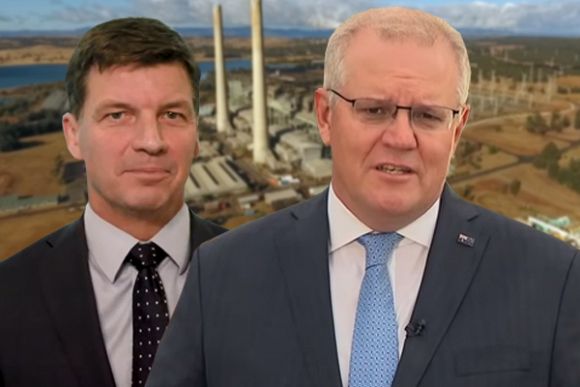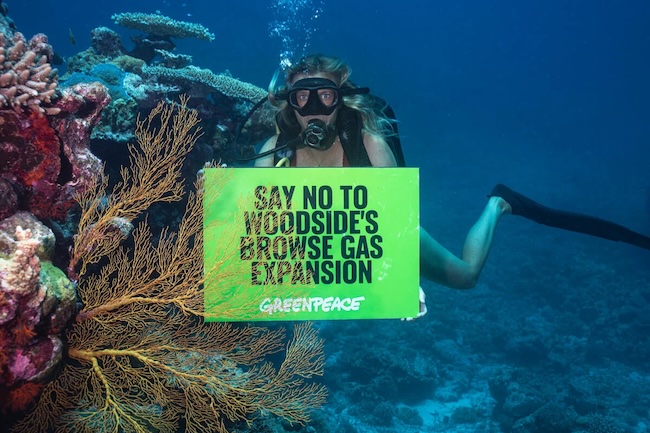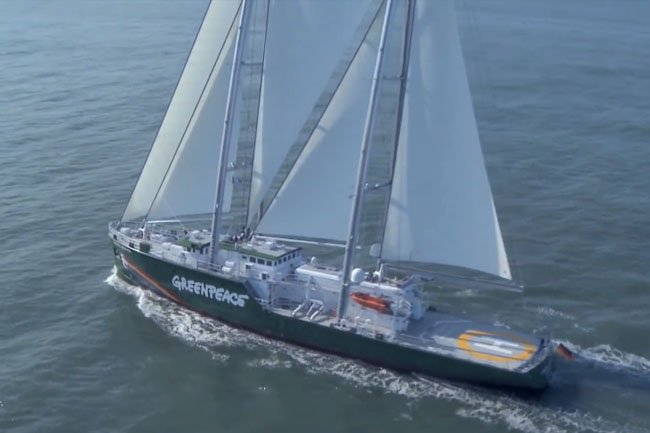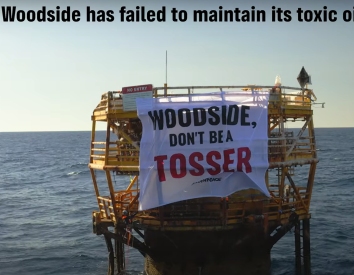When it comes to climate and energy policy, the Morrison Government has become like the deranged relative of Australian public life.
In contrast, a recent breakfast event that brought together NSW Minister for Energy and Environment Matt Kean and Federal Shadow Minister for Climate Change and Energy Chris Bowen felt like a much saner conversation. Indeed, the event, hosted by the Nature Conservation Council of NSW and chaired by Rebecca Huntley, almost felt like a welcome return to an earlier age.
It wasn’t just that real-life gatherings still have a hint of novelty about them in the wake of COVID-19, but also that the tenor of debate felt redolent of less irrationally polarised times. Bowen and Kean no doubt have some important ideological differences – as should be the case in a democratic society – but both accept that it is essential to take action to accelerate Australia to becoming an (at least) net-zero emissions country. They agree on the clear economic and moral case for transformative action.
Both assert that action on climate is consistent with the ideological legacy of their respective political traditions. For Kean, acting on climate is simply economically rational. For Bowen, “the story of opportunities, of hope, of embracing the future and bringing the Australian people with us” follows in the Labor reformist tradition of Hawke and Keating. Kean noted that his own clean energy reforms in NSW had now been enacted with multi-party support, meaning that they were there to stay.
Neither Kean nor Bowen was prepared to embrace the full urgency of where we are, or that a national target of net-zero by 2050 would be wholly inadequate under the Paris Climate Agreement. As Kean said in the Q&A session, “we must deal with reality” — the reality is that Australia must achieve net-zero emissions in less than 15 years. Fortunately, independent modelling has demonstrated that this task is doable. Reality also means that the pretence around gas has to go, too — it is just another dirty fossil fuel.
But elsewhere in Australia, fantasy persists. Coal, oil and gas are the number one drivers of global warming. Even the International Energy Agency has now said that the time for any new oil and gas fields or new coal mines and extensions is over and that all coal-burning power stations within the OECD need to close by 2030. Yet, the Morrison Government continues to insist on policies to syphon money to the fossil fuel sector and to push ahead with a project as wasteful and unnecessary as the proposed Kurri Kurri gas-burning power station planned to be inflicted on the Hunter Valley.
There was almost a sense of relief that nobody from the Government was present to wreck the event. When the Morrison Government is in the room, you can’t have a sensible conversation because of the bizarre outbursts and the phantasmagorical claims offered.
The failure of the Morrison Government on climate and energy has become a kind of bleak running joke. As journalist Benedict Brook noted, it is an odd day when a chocolate bar embarrasses an entire nation, but even the humble Kit Kat now has more climate credibility – and ambition on emissions reduction – than the Australian Government.
And much of business, which once lined up against a price on carbon in Australia, is now talking a very different language. Both Kean and Bowen talked up the economic and business case for rapid transition to renewable energy and spoke of the rising support among corporate Australia.
Particularly striking was an anecdote told by Kean of talking up NSW’s credentials as a destination for clean energy investment at an international gathering, only to be embarrassed by the speech from the following speaker who hailed from Morocco. As Kean relayed the story, the Moroccan said plainly that you could not trust Australia as an investment destination on clean energy because of the inconsistency of effort by the national Government.
As sponsor Stephen Moir noted in closing proceedings, the business turn on climate change is showing up in strategic planning, capital outlay and risk assessment, as well as by the expectations of community, customers and employees.
All speakers agreed that community sentiment in Australia has decisively shifted on the need for action on global warming. And as Matt Kean warned, the iron law governing politics is that if you do not reflect community sentiment, you are out.
Our irrational national Government is on notice.
David Ritter is CEO of Greenpeace Australia Pacific, adjunct professor at Sydney University and an honorary fellow of the Law Faculty at the University of Western Australia. You can follow David Ritter on Twitter @David_Ritter.
Related Articles
- Kids prepare another strike against government climate inaction
- Not fit for purpose: Australia needs independent Climate Change Authority
- Climate Change Authority reveals no commitment from Morrison Government
- Real-world 'Game of Thrones' is accelerating the climate crisis
- Morrison Government still stalling on emissions targets
 This work is licensed under a Creative Commons Attribution-NonCommercial-NoDerivs 3.0 Australia License
This work is licensed under a Creative Commons Attribution-NonCommercial-NoDerivs 3.0 Australia License
Support independent journalism Subscribe to IA.














